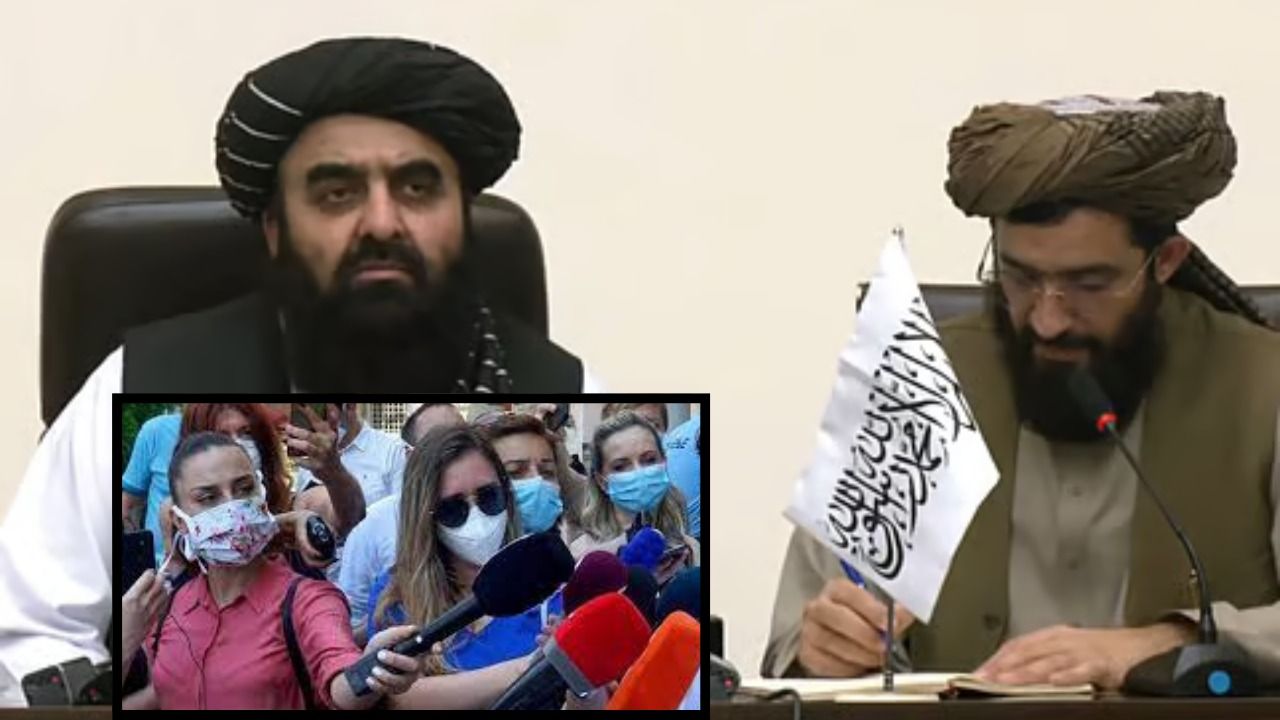 English
English

A Taliban minister’s press meet in New Delhi sparked outrage after women journalists were denied entry. But is this just an isolated event, or a reflection of the Taliban’s deeply entrenched gender restrictions in Afghanistan?

Taliban minister’s press meet sparks gender discrimination row
New Delhi: A press conference held by Afghanistan’s acting foreign minister Amir Khan Muttaqi in New Delhi on Friday drew sharp criticism after women journalists were reportedly barred from attending. The event, organised at the Afghan Embassy just hours after Muttaqi’s meeting with External Affairs Minister S. Jaishankar, was restricted to a small group of male reporters.
Sources familiar with the arrangements said the invitation list was curated by Taliban officials accompanying Muttaqi. The exclusion of women mirrored the gender restrictions imposed within Afghanistan under Taliban rule — a policy that has faced widespread international condemnation.
Despite suggestions from the Indian side to include women reporters, the recommendation was ignored, news agency reported.
Centre reacts on ‘no women journalists’ in Afghan FM Presser; Want to know more…
The exclusion of women journalists prompted strong reactions from opposition leaders and rights advocates.
Former Union Minister P. Chidambaram said men journalists should have boycotted the press conference in protest.
Congress MP Priyanka Gandhi Vadra questioned the Modi government’s silence, saying that allowing such gender bias on Indian soil was an “insult” to Indian women.
Trinamool MP Mahua Moitra called the incident “shameful” and accused the government of “dishonouring every Indian woman” by tolerating Taliban discrimination.
The outrage reflects India’s broader discomfort with the Taliban’s social policies — especially on women’s rights — since the group regained power in Afghanistan in August 2021.
The Taliban’s restrictions on women and girls have been among the most widely condemned aspects of its rule. Since returning to power, the Taliban has systematically erased women from public life, enforcing policies that contradict international human rights norms.
Here’s what women in Afghanistan currently face under Taliban rule:
Education Ban: Girls have been barred from attending secondary schools and universities since 2021.
Work Restrictions: Women are prohibited from working in most sectors, including government offices, NGOs, and international organizations.
Public Presence Curbs: Women are banned from parks, gyms, and public spaces without a male guardian.
Dress Codes: Strict enforcement of hijab and burqa is mandatory, with the Taliban’s “morality police” ensuring compliance.
Travel Restrictions: Women cannot travel long distances without a male guardian.
These measures have drawn repeated condemnation from the United Nations, Amnesty International, and global governments, with the UN calling Afghanistan “the world’s most repressive country for women.”
Incidents of excluding women from press events are not new under the Taliban regime.
In Kabul (2022), several Afghan women journalists reported being barred from government briefings or being forced to cover their faces on camera.
In 2023, the Taliban temporarily suspended the broadcast licenses of TV stations that employed female anchors who refused to wear face veils.
Foreign women correspondents have also faced restricted access to Taliban officials, often denied interviews or event invitations.
Friday’s incident in New Delhi marks the first time such discrimination occurred on Indian soil, sparking questions about whether India should have allowed it at all.
Most Wanted ISIS-K Commander Haji Musa Killed In Afghan Taliban Operation
When asked about women’s rights in Afghanistan, Muttaqi sidestepped the question, saying: “Every country has its own customs, laws and principles, and there should be respect for them.”
He claimed Afghanistan was safer under Taliban rule, saying: “Before the Taliban, 200 to 400 people died every day. Now there are no such losses. Everyone has their rights.”
But critics argue that peace without equality cannot be called stability. The absence of women journalists at his own press conference illustrated exactly what the world condemns — a peace built on silencing half the population.